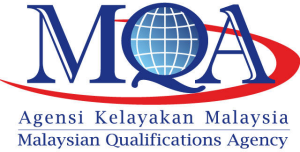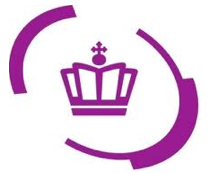The Hong Kong Council for Accreditation of Academic and Vocational Qualifications (HKCAAVQ), (HKCAA) is a statutory body established under the HKCAAVQ Ordinance which came into effect on 1 October 2007.

The Malaysian Qualifications Agency is a statutory body in Malaysia set up under the Malaysian Qualifications Act 2007 to accredit academic programs provided by educational institutions providing post secondary or higher education and facilitate the accreditation and articulation of qualifications.

The University of the Aegean is a public, multi-campus university located in Lesvos, Chios, Samos, Rhodes, Syros and Lemnos, Greece. It was founded on March 20, 1984, by the Presidential Act 83/1984 and its administrative headquarters are located in the town of Mytilene, on the island of Lesvos.

The Commission for Academic Accreditation (CAA) is the UAE Federal Government Quality Assurance Agency for Higher Education. Working collaboratively with relevant national and local authorities in the Emirates, the CAA has a key leadership role in securing and developing the quality of higher education in the UAE. As a matter of the highest priority, it sets out to safeguard academic standards, and to assure and enhance the quality of learning opportunities provided for students in UAE's higher education institutions (HEIs). It undertakes licensure of HEIs in the UAE and accreditation of their award-bearing academic programs. In order to be entered in the National Register and receive Federal Recognition any HEIs offering post-secondary education in the UAE must receive institutional licensure and accreditation of their degree, diploma and certificate programs that are of at least one-year study duration. CAA accreditation incorporates recognition of Diploma, Higher Diploma Bachelor's degree, Postgraduate Diploma and Certificate, Master's degree and Doctorate Degree. These Degree ranges from level 5-10 as per National Qualification Framework of UAE.
The Arab Network for Quality Assurance in Higher Education (ANQAHE) was established in 2007 as a nonprofit nongovernmental organization.
The Technological Educational Institute of Peloponnese was one of the 15 Technological Educational Institutes in Greece. Its main campus and administrative centre was located in Kalamata and one department was located in Sparta.

The Quality Assurance Authority for Education and Training (QAAET) is the governmental education quality assurance authority in Bahrain. As a part of the National Education and Training Reform Project, which is an initiative of the Crown Prince, a decision was taken to ensure that there is quality of education at all levels within the Kingdom of Bahrain. The Quality Assurance Authority for Education & Training was established by the Royal Decree No. 32 of 2008 amended by the Royal Decree No. 6 of 2009. In terms of Article (4) of the decree, its mandate is to ‘review the quality of the performance of education and training institutions in light of the guiding indicators developed by the Authority’. The Authority is also required to publish review reports as well as to report annually on the status of education within the Kingdom; this includes findings as well as improvements that have occurred as a result of the Authority’s activities. QAAET is an independent authority that carries out its mandated under the directions of His Excellency Shaikh Khalid bin Abdulla Al Khalifa, Deputy Prime Minister, Chairman of the Quality Assurance Authority for Education and Training. The Authority is regulated by the Council of Ministers and reports to it. To meet this mandate, four units were established within the QAAET: the Schools Review Unit, the Vocational Review Unit, the Higher Education Review Unit, and the National Examinations Unit. QAAET is a member of the Arab Network for Quality Assurance in Higher Education (ANQAHE).
Educational accreditation is a quality assurance process under which services and operations of educational institutions or programs are evaluated and verified by an external body to determine whether applicable and recognized standards are met. If standards are met, accredited status is granted by the appropriate agency.
Higher education accreditation is a type of quality assurance process under which services and operations of post-secondary educational institutions or programs are evaluated to determine if applicable standards are met. If standards are met, accredited status is granted by the agency.

The Technological Educational Institute of Thessaly or TEI of Thessaly was a Greek public educational institute abolished in January 2019, law 4589, Government Gazette 13 Α'/29.01.2019. Its former main campus and administrative centre was in Larissa, with satellite campuses in Trikala and Karditsa.
The Technological Educational Institute of Western Greece was a Greek tertiary educational institution, based in Patras with more than 20,000 students.

The Danish Accreditation Institution was established by Danish law as an independent institution in 2007. The institution consists of two entities; the Accreditation Council, which serves as the decision-making authority, and Accreditation Institution, which serves as the accreditation operator. The Council makes decisions on the accreditation of all higher education study programmes in Denmark, both new and existing.
Kardan University founded in 2002 in Kabul, Afghanistan is the first privately owned university in Afghanistan. It began its operations in a small classroom with 15 students in a country that was experiencing privatization in higher education for the first time.

The Foundation for International Business Administration Accreditation (FIBAA) is recognised accreditation body in all German speaking countries (Germany-Switzerland-Austria), FIBAA was founded in 2002 to accredit schools of business. Since the launch of the European Bologna Process, along with the transition to bachelor's and master's programs and the growing independence available to higher education institutions (HEIs) in designing their degree programs, the call for the HEIs to establish and advance sound and transparent quality assurance systems has grown continuously.
The ADRI approach to evaluation of an organization's effectiveness considers the following:
- Approach: what processes, strategies, and structures have been developed and reasons why they have been selected;
- Deployment: how these processes, strategies, and structures have been implemented;
- Results: what trends are indicated by the Key Performance Indicators (KPIs) and how this is assessed; and
- Improvement: what process is used for reviewing the appropriateness and effectiveness of the Approach and Deployment above.

Charisma University (CU) is an academic institution located in the Turks and Caicos Islands (TCI), British Overseas Territories of the United Kingdom. Charisma University is a non-profit institution recognized by the Turks and Caicos Islands Ministry of Education, Labour, Employment and Customer Service to offer accredited undergraduate, graduate, post-graduate degree programs and certificate programs in various disciplines taught by over 100 faculty members.
The Ministry of Higher Education and Scientific Research is a department of the Government of Syria that is responsible for maintaining and implementing government policies in higher education in Syria.







